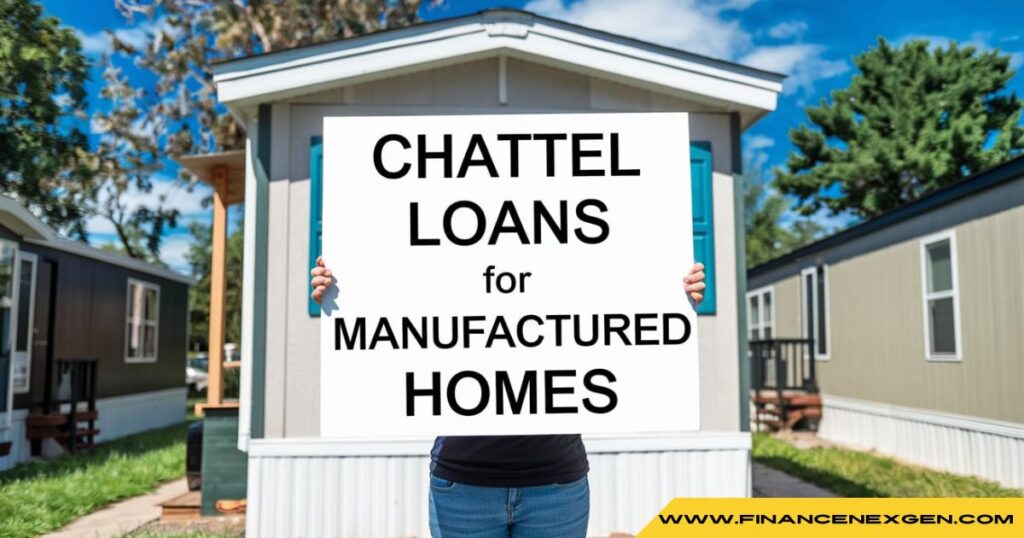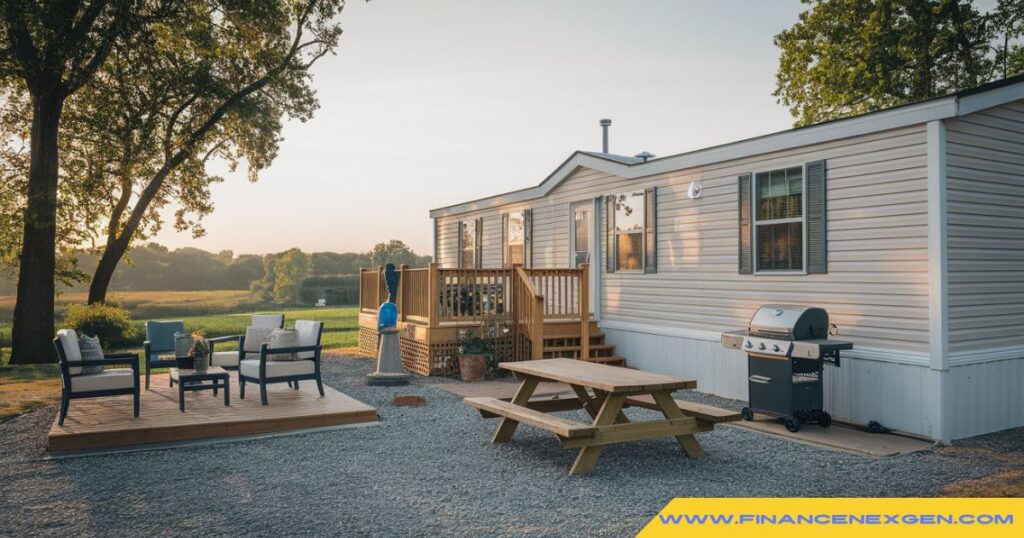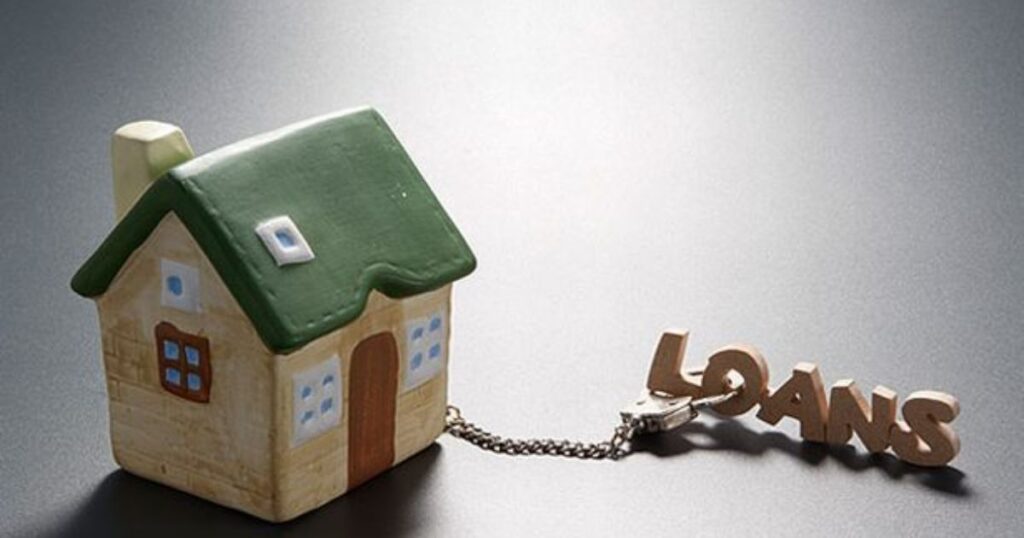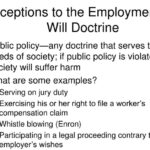A Manufactured Home Loan Calculator is a tool designed to help potential buyers estimate their monthly payments, total interest, and loan terms for financing a manufactured home. It factors in loan amount, interest rates, and other variables specific to manufactured home loans.
Use a manufactured home loan calculator to take control of your budget and make informed decisions before you commit. Discover how easy it is to plan your home purchase!
What is a Manufactured Home Loan Calculator?
A Manufactured Home Loan Calculator is a specialized tool that helps buyers of manufactured or mobile homes estimate their financing costs. By inputting key information such as the loan amount, interest rate, down payment, and loan term, users can quickly calculate their expected monthly payments and total loan cost over time.
Unlike traditional mortgage calculators, this tool is tailored to the unique structure of manufactured home loans, which often have different terms and interest rates. Whether you’re financing just the home or both the home and land, this calculator provides a clear picture of your loan affordability, making it easier to plan your purchase.
How to Use a Manufactured Home Loan Calculator
1. Enter the Loan Amount
Start by inputting the total loan amount you wish to borrow. This typically includes the price of the manufactured home and, if applicable, the cost of the land. Be sure to use the exact purchase price or loan estimate for accurate results.
2. Set the Interest Rate
Next, enter the interest rate provided by your lender. This rate affects your monthly payments and overall loan cost. If you haven’t received a rate yet, use an average rate for manufactured home loans as a starting point.
3. Choose the Loan Term
Select the length of the loan (e.g., 15, 20, or 30 years). Shorter terms result in higher monthly payments but less total interest paid, while longer terms lower monthly payments but increase interest costs over time.
4. Input the Down Payment
Enter the down payment you plan to make. A larger down payment reduces the loan amount, which lowers monthly payments and the total cost of the loan.
5. Calculate Monthly Payments
Once all information is entered, click “Calculate” to see your estimated monthly payments and other key details, such as total interest paid and an amortization schedule.
ALSO READ : Same Day Pre Settlement Loans
Factors That Affect Your Manufactured Home Loan
1. Loan Amount
The size of your loan depends on the cost of the manufactured home and whether you’re also financing land. A larger loan increases your monthly payments and total interest, while a smaller loan can make your payments more manageable.
2. Interest Rate
Interest rates have a significant impact on the overall cost of your loan. Manufactured home loans often have higher rates than traditional mortgages, especially if the home isn’t on a permanent foundation. Your credit score, down payment, and market conditions also influence the rate.
3. Loan Term
The length of the loan term affects both your monthly payments and the total amount of interest paid. A shorter term (e.g., 15 years) results in higher monthly payments but lower interest costs. Longer terms (e.g., 30 years) offer lower payments but increase overall interest expenses.
4. Down Payment
A larger down payment reduces the loan amount, which lowers your monthly payments and may also help you secure a better interest rate. Most manufactured home loans require a minimum down payment of 5-20%, depending on the lender.
5. Type of Loan
Whether you choose a chattel loan, FHA loan, VA loan, or USDA loan can affect your loan terms, eligibility, and interest rates. Each loan type has different requirements and benefits.
Chattel Loans for Manufactured Homes

Chattel loans are specifically designed for financing personal property, which includes manufactured homes that are not permanently affixed to land. These loans are popular among buyers who plan to place their home in a park or lease land. While chattel loans typically have shorter terms and higher interest rates than traditional mortgages, they offer flexibility for buyers not purchasing land. However, the downside is the potential for higher monthly payments and total interest costs.
FHA Loans for Manufactured Homes
The Federal Housing Administration (FHA) offers loans for buyers of manufactured homes, whether or not land is included. FHA loans are backed by the government, making them more accessible for buyers with lower credit scores or smaller down payments. FHA Title I loans are used for homes without land, while FHA Title II loans are available if the home and land are both purchased. These loans generally offer lower interest rates and down payment requirements, but they come with mortgage insurance premiums that increase the cost over time.
VA Loans for Manufactured Homes
Veterans Affairs (VA) loans are available to eligible veterans, active-duty service members, and their families. These loans offer several advantages for manufactured home buyers, including no down payment and competitive interest rates. VA loans can be used to finance both the home and land, but the home must meet specific requirements, such as being permanently affixed to the land. The main benefit of a VA loan is that it can make homeownership affordable for veterans who might not qualify for other types of financing.
USDA Loans for Manufactured Homes
The United States Department of Agriculture (USDA) offers loans for buyers of manufactured homes in rural areas. USDA loans have strict eligibility criteria, including location restrictions and income limits. These loans offer no down payment options and competitive interest rates, making them an attractive option for buyers who qualify. However, like VA loans, the home must be permanently installed on the land to qualify for USDA financing.
Tips for Getting the Best Manufactured Home Loan Rates
To secure the best loan rates, it’s important to shop around and compare lenders who specialize in manufactured home loans. Improving your credit score, saving for a larger down payment, and considering longer-term loans can help you qualify for better rates. Additionally, consider working with lenders who offer government-backed loans, like FHA, VA, or USDA, as they typically provide lower rates and more favorable terms.
Manufactured Home Loan Calculator vs. Traditional Mortgage Calculators
A Manufactured Home Loan Calculator is specifically designed to calculate loan payments for manufactured or mobile homes, which often have different loan structures compared to traditional homes. While both calculators estimate monthly payments, interest, and total loan costs, the key differences lie in the type of loan and terms they cater to.
Here’s how a manufactured home loan calculator differs from a traditional mortgage calculator:
- Loan Type: Manufactured home loans often involve chattel loans, which cover personal property, whereas traditional mortgages typically cover real estate.
- Interest Rates: Manufactured home loans usually have higher interest rates.
- Loan Terms: Manufactured home loans may have shorter terms (e.g., 15-20 years) compared to traditional mortgages (up to 30 years).
- Down Payment: Requirements for manufactured homes may vary, and calculators account for lower down payments or specialized financing options.
Additional Costs to Consider When Buying a Manufactured Home

In addition to the loan payments, several other costs come with owning a manufactured home. These expenses can vary based on location, whether you own or lease the land, and the type of home you purchase.
Insurance
Manufactured homes require specific insurance coverage, which is typically more expensive than standard homeowner’s insurance for site-built homes. This is due to factors like mobility, susceptibility to weather damage, and the home’s construction materials. Homeowners should budget for both dwelling and personal property insurance, as well as additional coverage for natural disasters if applicable.
Property Taxes
Property taxes for manufactured homes can vary depending on whether the home is classified as real estate or personal property. Homes on permanent foundations and owned land are often taxed similarly to traditional homes, while homes on leased land might face lower taxes. Be sure to check with local authorities for accurate tax estimates.
Land Lease or Purchase
If you don’t own the land where your manufactured home will be placed, you’ll need to lease it. Land lease costs can vary significantly based on the location and amenities provided in mobile home parks. Alternatively, purchasing land involves a higher upfront cost, but it can provide long-term financial stability and increase the home’s value.
Maintenance and Upkeep
Manufactured homes require regular maintenance to ensure their longevity. Homeowners should budget for routine upkeep such as HVAC servicing, plumbing repairs, and exterior maintenance. Over time, these costs can add up, so it’s important to plan for them when calculating the total cost of owning a manufactured home.
Conclusion :
Purchasing a manufactured home involves more than just the loan; it’s essential to consider additional costs like insurance, property taxes, land leasing or purchasing, and regular maintenance. Using a manufactured home loan calculator can help you accurately estimate your monthly payments and overall expenses. By understanding these factors and exploring different loan options, you can make an informed decision that fits your financial situation and long-term goals for homeownership.
People also ask
How long are most mobile home loans for?
Most mobile home loans typically have terms ranging from 15 to 20 years, though some may extend up to 30 years.
How is the installment on a home loan calculated?
The installment is calculated using the loan amount, interest rate, and loan term, applying the formula for fixed-rate amortization to determine monthly payments.







